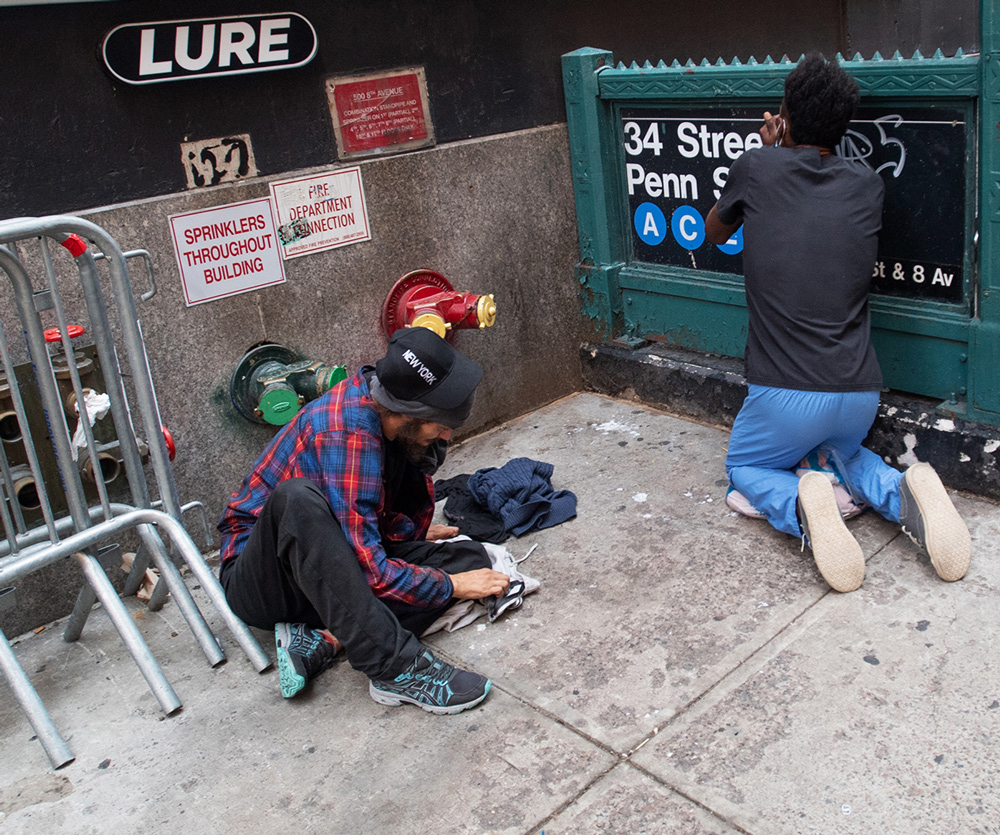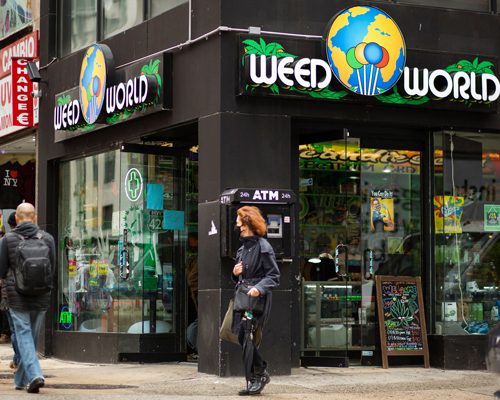NEW YORK — The May 1 death of Jordan Neely on the subway here followed by the district attorney charging Daniel Penny with second-degree manslaughter generated a wide-ranging debate and discussion on what happened and why.
Neely, a 30-year-old African American, had been homeless for more than a decade. Reports from family and police records indicate Neely’s spiral into mental illness, aggravated by drug abuse, accelerated and deepened over that time, especially after his mother was murdered by his stepfather in 2007. By 2023, Neely had been accused of physically assaulting several people and had a record of 42 arrests, including for punching a 67-year-old woman in the head.
Little is known about Penny, a 24-year-old veteran of the U.S. Marines, other than a May 20 interview he gave to the New York Post.
On May 1, Neely got on the F train. Witnesses report he was aggressive, screaming at other passengers, saying he was fed up and demanding food and water. They said he shouted that he didn’t care about going to jail or dying. Juan Alberto Vasquez, another passenger, told the media at one point Neely threw his jacket to the ground in a way that he thought was a prelude to violence.
Within seconds, Vasquez said, Penny had grabbed Neely from behind and the two fell to the ground. Another man joined Penny in restraining Neely and a third sought to help. Penny reportedly told other passengers to call police.
While passengers kept the train stopped at the next station, it took seven minutes before authorities arrived. By then, Neely had died.
The subway has become one point where this city’s homeless, mental health and drug abuse crises converge and the consequences for working people are sometimes devastating. Millions of workers head to and from work on the subway every day, 24 hours a day, with its 472 stations and hundreds of miles of track.
By some estimates, there are more than 70,000 homeless people here. Some 13,000 of them suffer from severe mental illness, including schizophrenia, bipolar disorder and depression. In a city that is the capitalist world’s financial capital, the absence of safe shelter and medical attention is a fact of life for thousands, and a symptom of the deep crisis working people face. Many who are homeless find their way to the subway looking to escape inclement weather, a place to sleep or a handout to survive.
In 2021, 2,668 people died here of drug overdoses, an increase of 78% since 2019. Fentanyl and opioids, among other all-too-often fatal drugs, flow freely on the streets. Now, stores are popping up in droves in a heated drive for profits from the sales of marijuana, recently legalized by the state. This comes just as medical studies show cannabis use has been tied to 30% of schizophrenia cases in adolescents.
The rate of felonies in the subway system was twice as high in 2022 as in 2019. Ten people were murdered that year, including Michelle Go, a 40-year-old who was pushed in front of an oncoming subway train in Times Square. Ten people were wounded when Frank R. James unleashed gunfire on an N train in Brooklyn.
On May 28, 2022, a man attacked a woman in a Manhattan subway station, shoving her head into a moving train causing severe injuries. This year alone, subway riders have reported 450 incidents of harassment and assault. Many more have gone unreported.
Democratic Congresswoman Alexandria Ocasio-Cortez, City Comptroller Brad Lander, Rev. Al Sharpton and others were quick to call Penny a murderer and vigilante, without a shred of evidence. Some called Neely’s death an example of “white supremacy” on the rise and a “lynching.” These claims echo the speech President Joseph Biden delivered May 13 at Howard University, where he asserted the “poison of white supremacy” is the “most dangerous terrorist threat to our homeland.”
In the Post interview, Penny said, “This has nothing to do with race. I judge a person based on their character. I’m not a white supremacist.” He said it had everything to do with a broken system “that so desperately failed us.”
“The smear against Penny by Democrats, the middle-class left and liberal capitalist media is especially pernicious,” Róger Calero, Socialist Workers Party candidate for New York City Council in District 48, told the Militant. “Underneath it is their disdain for the facts, contempt for working people, including our daily acts of solidarity and humanity that keep us going and help us avoid harm.
“The brutality and rawness of life — the mental health, drug and homeless crises,” Calero said, “pose whether we just become numb, callous or cynical about what’s happening around us and to us. Or we face it, act on our self-worth, guard against the demoralization and ruin of our class, and chart a working-class road forward that defends life and the future.
“The capitalist parties — both Democrats and Republicans — that run this city and country are responsible.”
“It’s a lie that racism and white supremacy are on the rise,” Calero said. “After decades of struggle, including the mighty battle that tore down Jim Crow segregation, there is more potential today to unite working people, regardless of skin color, in a struggle to protect our interests as a class, the working class.”
Calero said it is especially important to insist that Penny’s constitutional rights be protected. “He must be presumed innocent, and the onus is on District Attorney Alvin Bragg to prove beyond a reasonable doubt he is guilty of a crime.
“There is no such thing as a fair trial under the capitalist justice system. Bragg’s tossing constitutional rights aside in a drive to bring down former President Donald Trump is proof of that.”



